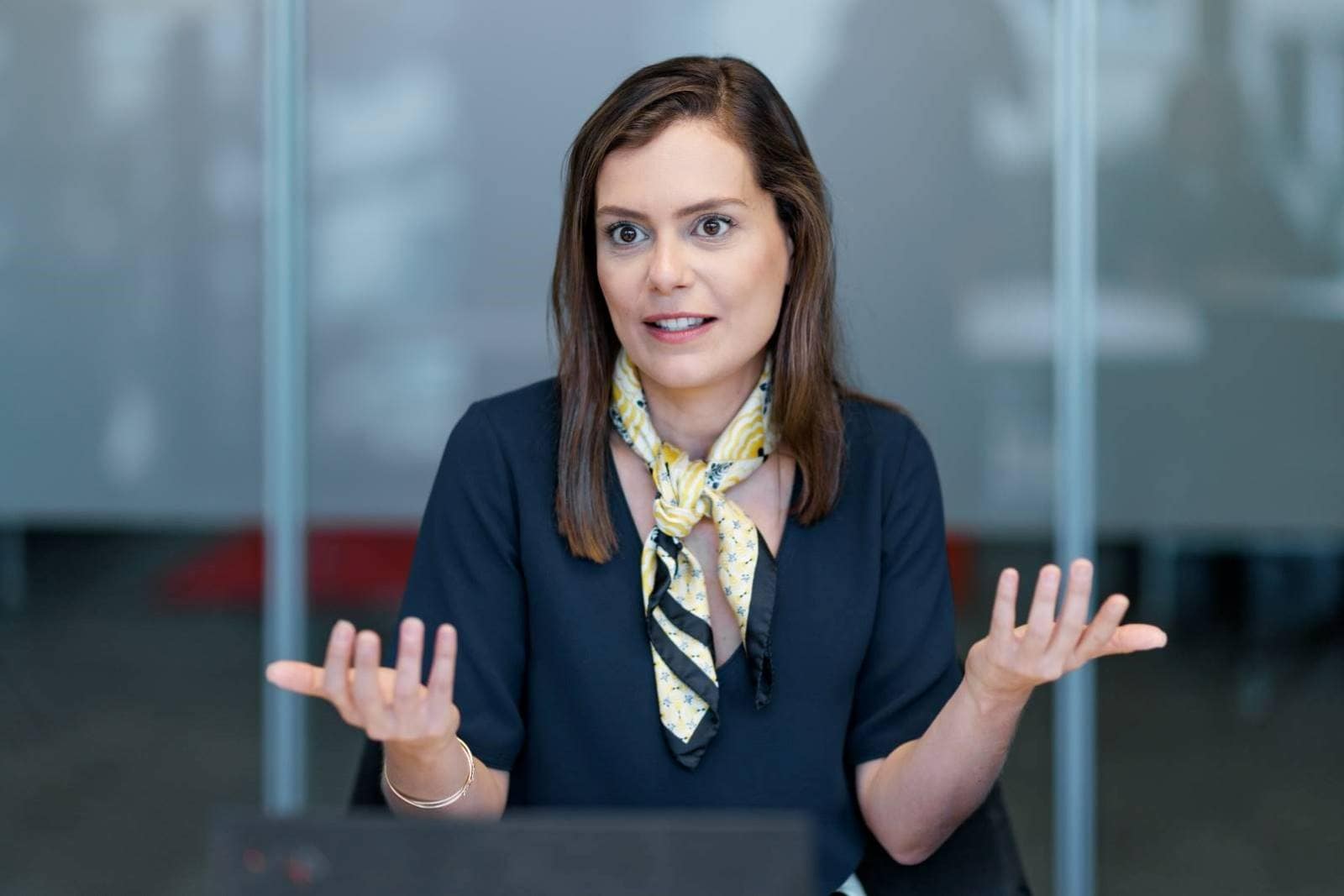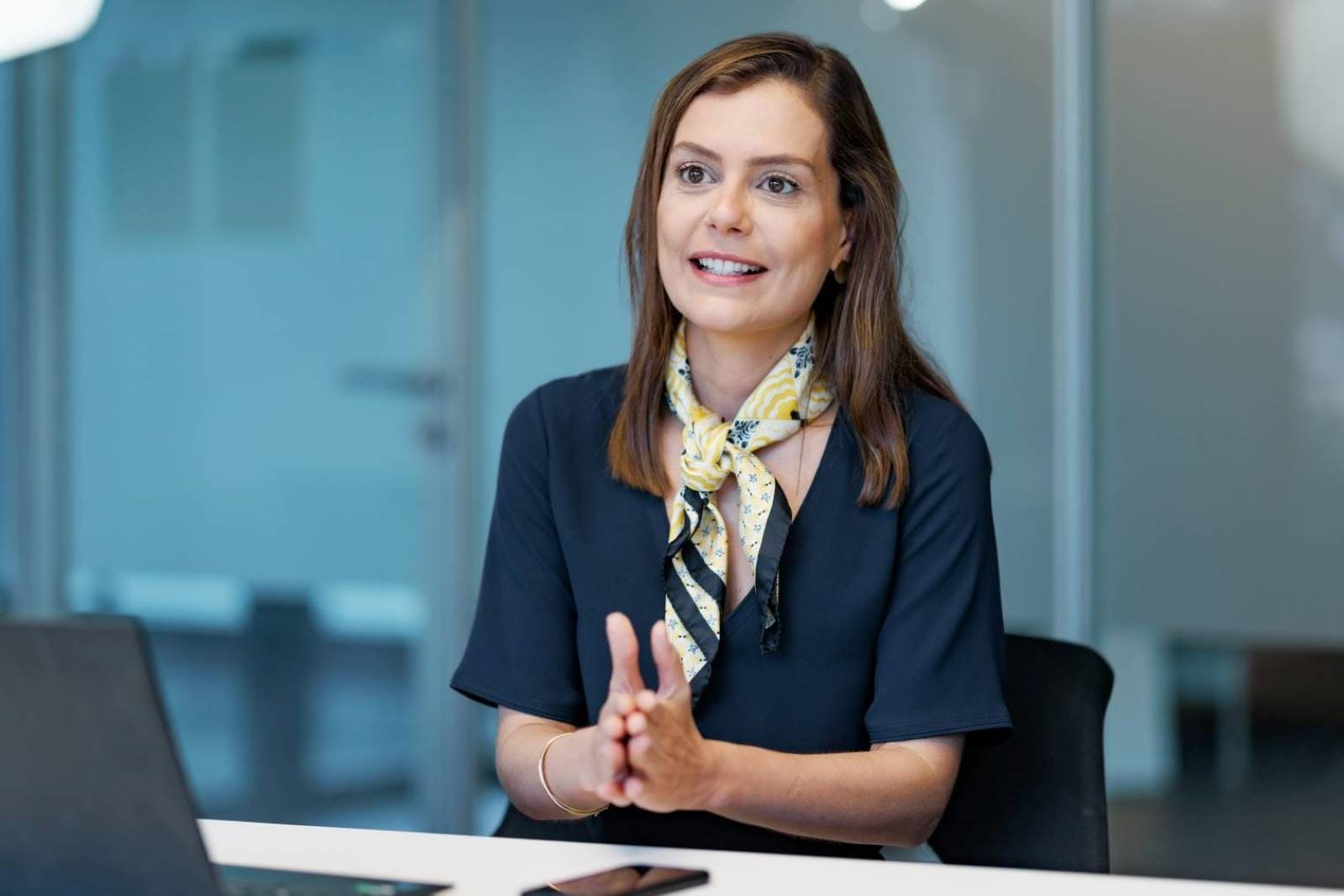{{item.title}}
{{item.text}}

{{item.text}}
Digital assets are transforming the finance industry. How can the risk function ensure that it addresses the upcoming challenges while putting clients at the centre of the organisation’s activities? In this interview with Carolina Thomaz, we cover some of the cutting edge thinking and practices transforming finance industry from the leading digital financial services provider, Sygnum AG, the world’s first regulated digital asset bank. Carolina also shares the five key lessons from her risk journey stretching from academia and telecommunications engineering to private banking.
“Excluding opportunities can be the biggest risk of all.”
Alexandra Burns: There are many paths to risk management. What has your journey been?
Carolina Thomaz: My personal journey has had a significant bearing on where I am today. I was born and raised in Rio de Janeiro and maths was always my greatest interest. When I was 17, a renowned military university in Brazil decided, after 200 years, to accept female students. My teachers encouraged me to apply. You cannot take such opportunities for granted in Brazil. So, I took a chance and applied. I was one of only five female students. It takes five years to complete a bachelor’s degree in Brazil and during this time I learnt to work within the existing culture – in a positive way. This meant being part of the overall group and not women being dominated by men.
Although I graduated as a telecommunications engineer, and initially worked in this field, I was always interested in finance. Therefore, I followed my passion and joined a mid-sized bank in Brazil that was focused on corporate credit. As I commenced my banking career in a commercial role – the first line of defense – I continued to take the frontline perspective and always tried to put myself in their shoes. Subsequent responsibilities included product development and credit management before becoming head of risk at a private bank in Switzerland and finally joining Sygnum.
How has this journey influenced your approach to risk management? What are the key lessons learned?
In hindsight, there are five key principles that I’ve developed based on this experience. Firstly, influence by collaboration. Successful risk management is not simply about procedures and policies, but foremost about how you influence people. Secondly, stay curious and open to continuous learning. Try to avoid the comfort zone. As I learnt in the army, there’s nothing so good that can’t be improved and nothing so bad that couldn’t get worse. Thirdly, listen to the frontline. People should feel comfortable in asking questions and not fear being penalized. Putting yourself in their shoes is one of the ways you can add value. Fourthly, ensure resilience, especially by building a strong foundation in good times. Finally, take the risks and seize the opportunities. Excluding opportunities can be the biggest risk of all.
Alexandra Burns
Partner, FS Risk Consulting & Internal Audit, PwC Switzerland
Tel.: +41 58 792 46 28
What attracted you to Sygnum?
I believe that digital assets are the future of finance. These are not limited to crypto assets. This technology will lead to disruption in the industry and significantly increase efficiencies, for example, by turning intellectual property into securities. I appreciate Sygnum’s start-up, entrepreneurial culture as well as being able to build up a risk framework within the group.
The digital asset journey is an enabling journey. Sygnum allows anyone, anywhere to invest in digital assets with complete trust. Our regulated digital asset banking offering seamlessly integrates our institutional custody, brokerage, staking (a yield generating service) and lending services. On the same platform we also offer asset management, B2B banking services and a primary issuance platform which tokenized the Picasso painting, Fillette au béret. Tokenization allows Sygnum to break down paintings, or any other real-world or financial assets, into fractions on the blockchain with ownership fully recognised under Swiss law.
“Digital assets are the future of finance.”
Sygnum is the world's first digital asset bank, and a digital asset specialist with global reach Sygnum was rooted from the start in the financial hubs of Switzerland and Singapore. From this heritage, it grew to be the first digital asset specialist with both a Swiss banking license and a Singapore asset management license. It aims to harness the power of Distributed Ledger Technology (DLT) to systematically and holistically embed digital assets into regulated banking.
How do you build trust with a digital asset offering?
It’s all about trust. Digital assets are very complex for many people. On the custody side, for example, we have the background of undertaking risk assessment on offered tokens. We offer those which we believe to be the finest. This helps to build trust. Sygnum holds a banking license in Switzerland and a CMS license in Singapore, and compliance standards meet the regulations of FINMA and MAS respectively.
“Sygnumers” are all risk managers.”
What are your main risks?
Our main risk, as stated in the annual report, is money laundering. To address this, we need adequate controls through all lines of defense and well-trained employees whom we call “Sygnumers”. They are trained to spot risks with either digital or FIAT assets and proactively raise any issues that they identify. Then there is business continuity and cyber security. These issues are related, especially in the areas of system interruptions. Here we rely on a strong team and top technology project managers.
Do you take a holistic or panoramic view of risk?
You must think about risk outside the organization including external factors such as the war in Ukraine and inflation. Also, crypto assets are built within an ecosystem involving many different players. You can’t work in silos. Collaboration is paramount and goes hand in hand with building trust. Here we have an advantage given our employee profile who are mostly millennials. In my experience, the millennium generation is super collaborative. This aids in managing risks.
For example, regarding the Ukraine crisis, we went further in our analysis than the recent EU sanctions. We build the foundations in good times so that we and our partners have the resilience to continue operations in stressful situations.
“There’s nothing so good that can’t be improved and nothing so bad that couldn’t get worse.”
In which areas do you see opportunities for more traditional financial institutions to take risks in the crypto market?
Risk analysis. Everything is a risk return trade-off and should involve conscious decisions based on an agreed approach. We have an entrepreneurial culture and there are always new projects. Sometimes we think there are risks that we don’t want to take. We assess all risk components from a Go / No Go perspective. The values of the company are very important. Primary amongst this is our “sunshine” test. Would we be happy for any decision to be on the front page of newspapers? If so, we proceed.
How do you see risk management changing in the future?
There will be an increase in data processing and data analytics which will lead to more forward-looking risk management. The function will have the capacity to take more preventive actions based on early warning indications. Most importantly, the data and systems will support people in the decision-making processes. The data will provide teams with the basis to brainstorm the optimal, practical solutions on policy implementation. Assessments performed by people will always be needed in risk management.
Finally, what advice would you give to someone starting out in the risk management function?
Work in collaboration with the frontline and be prepared to take the decision that is best for both parties – the client and the bank. For example, if employees are going through a transaction and come to you with questions, then you need to understand their position, go through the policy and work together to brainstorm the best solutions.
Prior to Sygnum, Carolina worked at Itaú Private Bank in Zurich as Head of Risk Management for six years, where she was in charge of Financial and Operational Risk Management and led digital transformation projects.
Previously, as Project Manager at the multinational mining corporation Vale, she managed a portfolio of risk management projects across the globe. She also held positions in the financial industry, developing customized products for wealth and asset management investors.
Carolina holds a Master’s Degree in Economics and a Bachelor’s Degree in Telecommunications Engineering and is a certified Financial Risk Manager (FRM).
#social#
{{item.text}}

{{item.text}}

Partner, Leader Financial Services Risk Consulting & Internal Audit, PwC Switzerland
Tel: +41 58 792 46 28

Partner, Risk Consulting, Risk Consulting Leader TIS (Trade, Industry, Services) and Internal Audit, PwC Switzerland
Tel: +41 79 816 27 00






